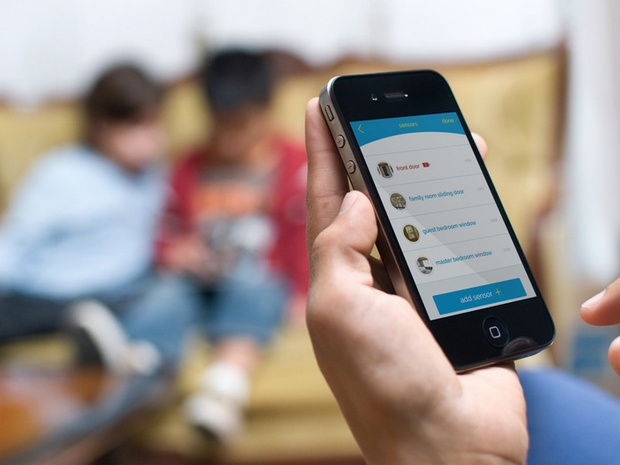
Home sensor startup Notion, which last fall Kickstarted its first batch of sensors for in-home monitoring, has pulled in a $2 million seed investments from Draper Nexus Ventures, Gabriel Investments, Galvanize Ventures, Foundry Group Angels and TechStars.
The startup, a TechStars Boulder alum, raised just over $280,000 in crowdfunding last year, and is now shipping out beta units. Co-founder and CEO Brett Jurgens tells TechCrunch it’s on track for main backer fulfillments this summer — in late July, early August.
“The Kickstarter funds cover all the Kickstarter expenses, the tooling, all of that kind of stuff and for us, really, this [new funding] is to help support that launch and to help establish our efforts post our Kickstarter shipments,” he adds. Part of the new funding will go towards new hires in sales and marketing.
Notion’s twist on home sensing is to pack a whole lot of sensors into each of its connected devices — allowing for a high degree of flexibility and customization in terms of what the devices can be used to keep tabs on. Each Notion sensor, which is small enough to be stuck to a window or inside a refrigerator, contains seven sensors in all, and can detect movement and light changes, temperature, water, proximity and more.
It’s the ability to triangulate a combination of sensing data that the team sees as its path to differentiating in what is already a pretty congested space. Aka the race to own the so-called ‘smart home’.
“Because we have multiple different sensors in every one of our sensors they’re actually working as checks and balances for each other. An accelerometer, gyroscope, a magnetometer and a proximity sensor are all helping us understand the opening of a door, the opening of a drawer, all those types of things in different ways,” he says.
“You might have a really heavy slow moving door. In fact, we just had an accelerometer in an early version and it didn’t pick up on some of the really slow moving things in a home… Water leak detection is a huge use-case for us but we also have temperature. If you have a sensor near a water heater and it’s 50 degrees near that water heater, you don’t have a water leak — potentially if you have Notion. It’s great that we can detect water leaks but we want to prevent things as well.”
And while Jurgens says a lot of early backers have been interested in using its sensors for home security purposes, the startup is keen to build a broader offering — one that’s lobbying for the concept of a ‘conscious home‘ (a phrase being pushed by Nest’s Tony Fadell).
“Where we really want to take this… is around that awareness concept. Right now there’s a lot of discussion around security and keeping your home secure, but that’s not enough — it doesn’t do justice to what we think your home should be able to do for you and for itself. Part of that is integration partnerships,” says Jurgens.
In August Notion will be adding integration with Nest and IFTTT. After that he says it’s looking to launch an API with the aim of encouraging a developer community to start hacking around with the devices, and coming up with compelling use-cases for its system.
“Longer term, we think your home should be able to do what your car has done for decades. Your car has been able to tell you how full the fuel tank is, it’s been able to help you know when it needs an oil change, to keep your comfortable with music and heat and air conditioning… your home for centuries has never done any of this, it’s never been able to tell you important things and do important things for you,” he adds.



